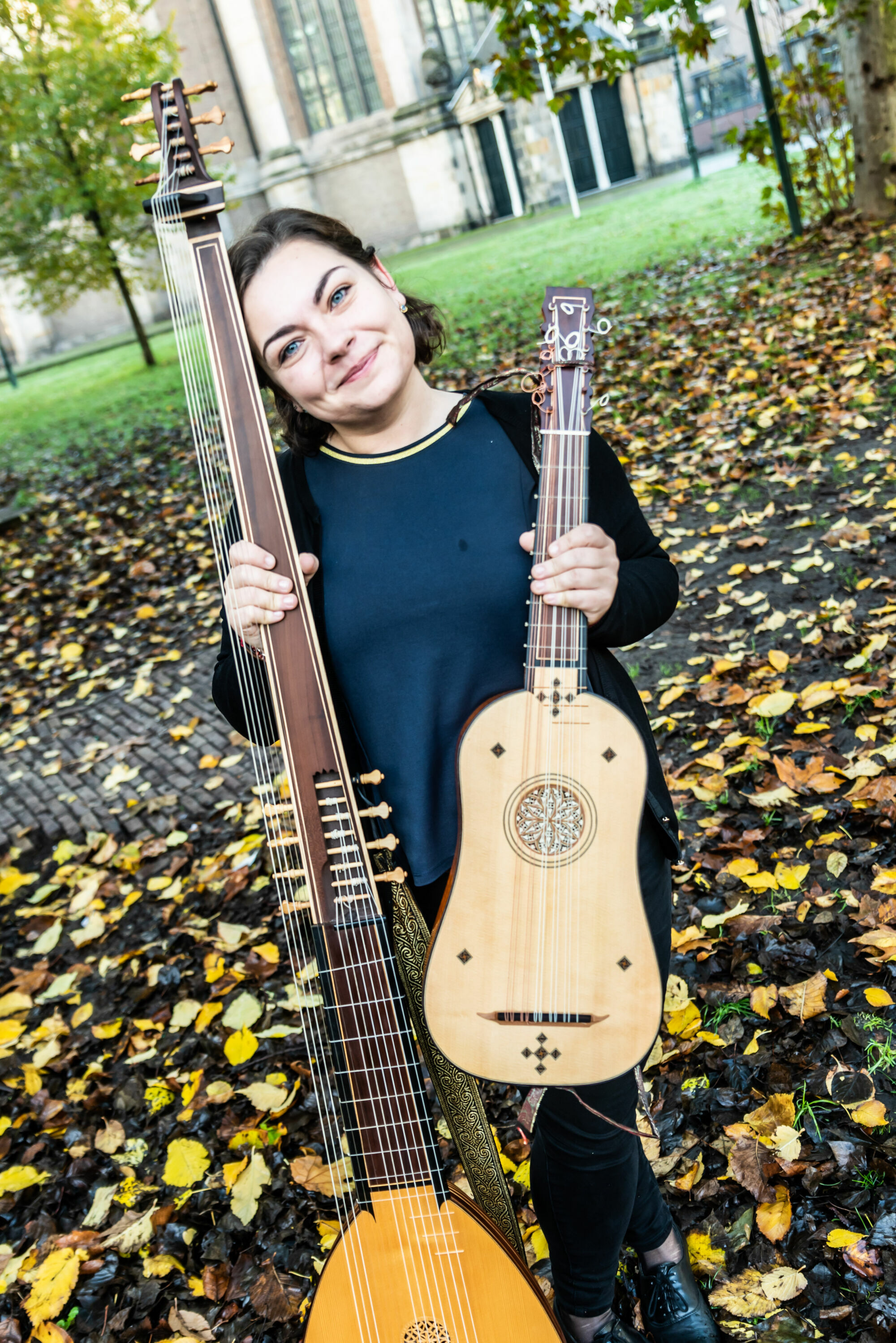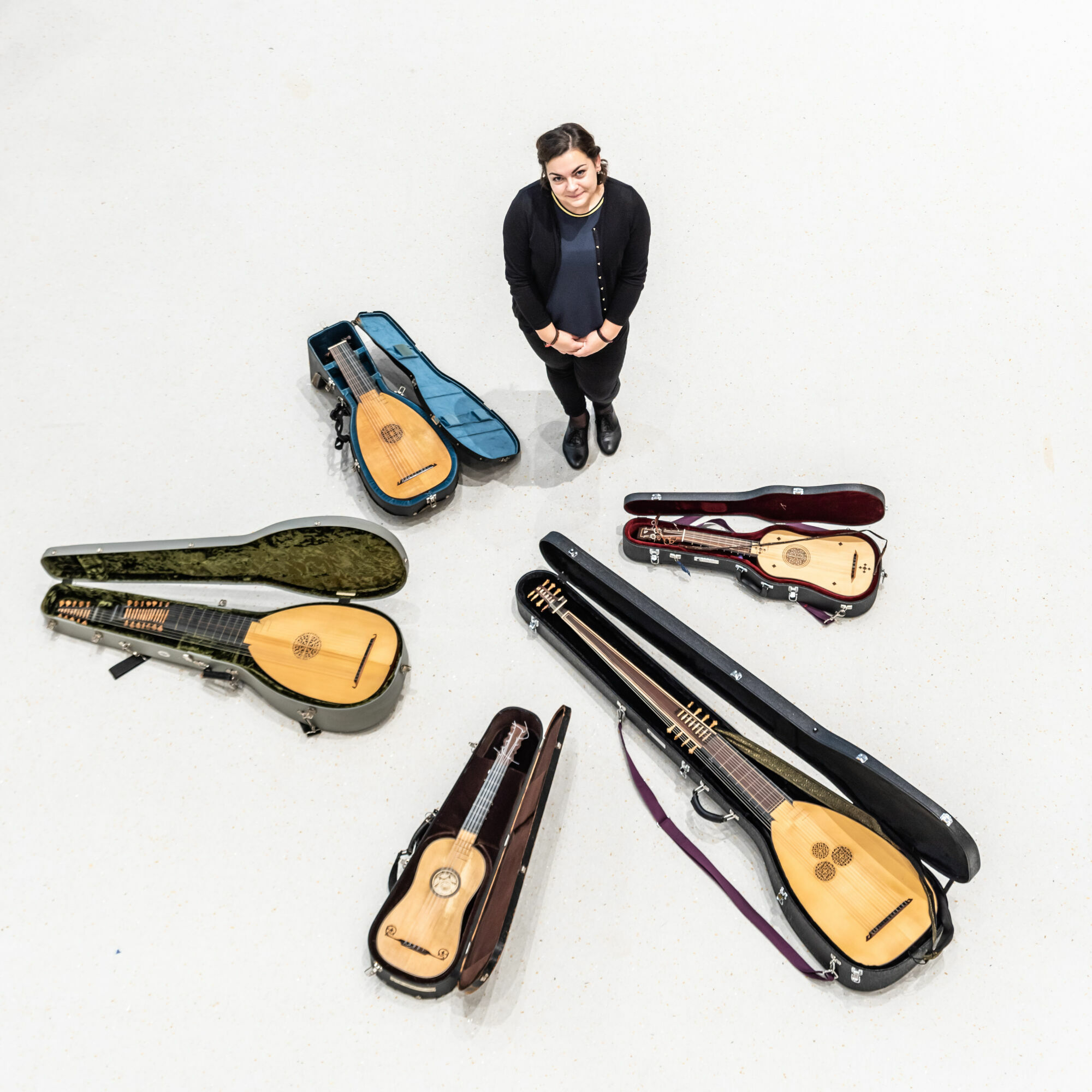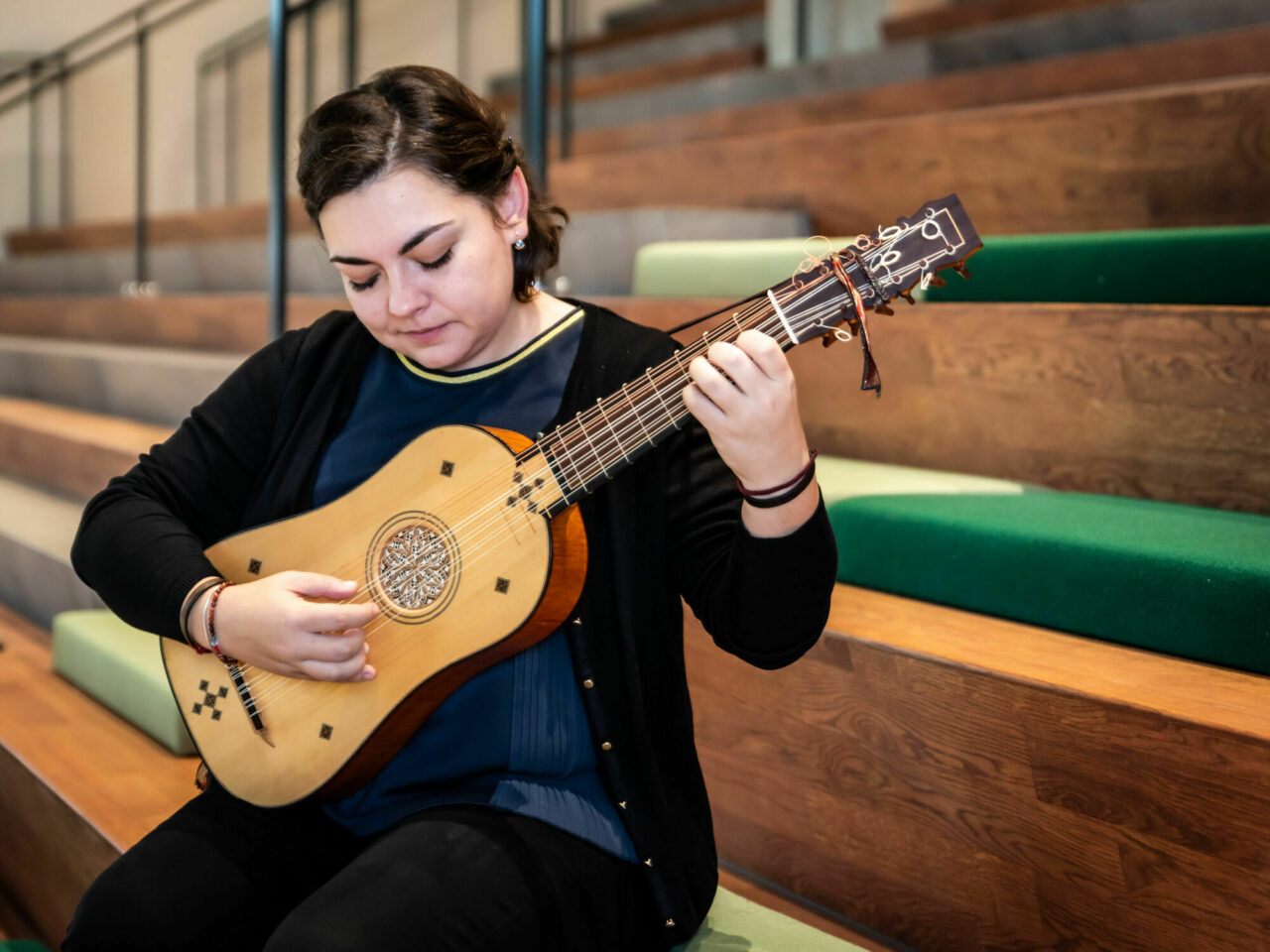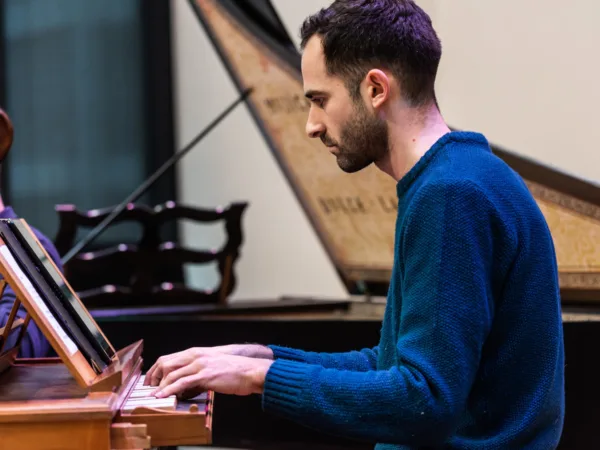Kateřina - "Trying something new, creating a project, working together with other musicians and departments; everything's possible"
13 December 2022
Kateřina Maňáková just finished her Master's in Early Music and utilized all the opportunities that the Royal Conservatoire has to offer. She's ambitious, determined and has lots of entrepreneurial spirit. In this interview, she talks about her experience so far, the things she's learned, the safety net she feels and the endeavours she can pursue because of it. See what our recent alumna experienced during her masters year.
Finding possibilities when there are limitations
'I've been interested in Early Music all my life, but there weren't any options back home in the Czech Republic to study it. I must have been about six or seven when I was told by one of the classical guitar teachers that playing the lute wasn't a good idea. You couldn't study it and not make a living from it.' Kateřina felt determined to prove them wrong and to pursue her passion. 'A few years later, during my studies in Spain, I felt inspired by all the concerts and festivals around Early Music and started seeing the possibilities. I was fortunate that I could study and share this passion with Karel Fleischlinger at Kroměříž Conservatoire in the Czech Republic.' There, she was able to dive into Early Music. During her Bachelor studies at Janáček Academy of Performing Arts in Brno, she participated in an exchange programme, which allowed her to study at the Royal Conservatoire for a year. "That opened my eyes, and I knew then and there that I wanted to come back to do my Master's here."

Grabbing opportunities when they arise
'The Royal Conservatoire has a lot to offer. Whichever field you decide to research, you can. My research revolves around sacred music in 16th-century Spain (vihuela de mano intabulations). Although the Early Music department is often baroque-oriented, there are a lot of theoretically based subjects, and there's a lot of in-house knowledge to help my development and research. The teachers' background is why I'm able to thrive here. Studying with Joachim Held and Mike Fentross was a big motivation for me to apply.'
The size of the Early Music Department is notably big and filled with expertise. 'I strongly encourage everyone to grab all the help, advice and possibilities offered because it's going to be much harder to come by them after you leave. Make the connections. Not just with your fellow students but also with the teachers and musicians outside the school. As a continuo player, I've built a strong network, which is essential for any musician. You also need to be a player others want to play with. Something I am trying to become. I could join many school projects, but the biggest experiences come from projects outside school. I have had the amazing opportunity to be part of great orchestras and ensembles like, for example, Europäisches Hanse-Ensemble, to travel around Europe and explore so much of early music repertory. So yes, make the most of it during the two years you'll be under this roof and dive in.'
Kateřina mentions how she can thrive, knowing that she has the Royal Conservatoire to fall back on. 'For me, that means having the freedom and the help to explore. A safety net, if you will. Whether that's trying something new, starting a project, or collaborating with other musicians or departments. Advise if readily available. You have unlimited resources at your disposal here.'
Ambition and camaraderie
'The students here are very ambitious and interested in their work. Entrepreneurial spirit and endeavours are greatly encouraged here. Knowing where you want to go helps. Of course, you can explore different things within your studies, but you will get more out of it if you already know where you want to go. Everyone's direction is slightly different, which makes it all the more interesting.'

Taking care of yourself
Having so much ambition comes with risks. Risks you might not realise in the beginning. Wanting to study and practice your passion 24/7 and being surrounded by other students who do the same is great, but taking care of yourself is crucial. 'Looking after your mental and physical health is incredibly important, and it took me years to realise. Learning to rest is one of the most challenging things during my studies because I want to know more and be better, and the sources are never-ending. The teachers know the pitfalls and the signs we should look out for. The goal is to have a long, healthy and passionate career. That means looking after yourself and sometimes asking for help. There's always someone to talk to if needed, and there are also classes that the school proactively encourages you to take, such as yoga and Alexander Technique. The last one especially, I have found to be incredibly helpful.'
Paying it forward
'It's going to be hard to leave, so it's hard to think about my future beyond that. But I do have a few ideas. Early Music departments back home in the Czech Republic are small and in the early development stages. I would love to take what I've learned here and pay it forward by teaching there and starting a collaboration or programme. During my time here, I've learned that if you want something, you should take action. And that the small things add up, they make a difference.'
Interested? Go to our 'Apply now' pages for more information about the Royal Conservatoire.








